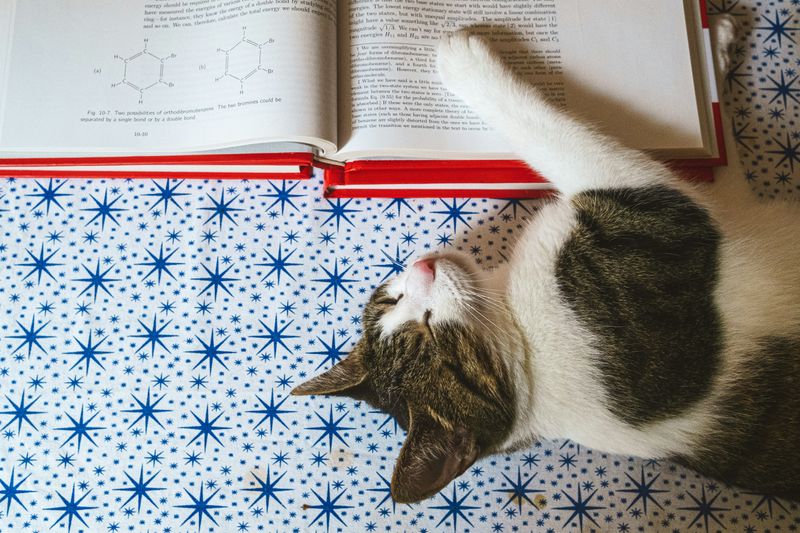So you are enrolled in a college chemistry class! Maybe you're a chemistry major or maybe this chemistry class is the gateway to your major classes.
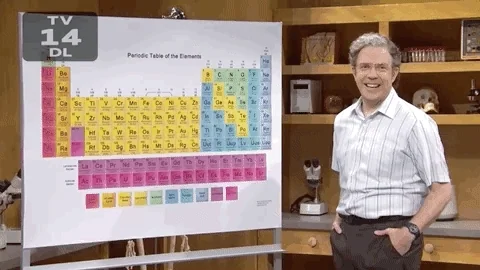 Chemistry can be a challenging class, but with some hard work and effective study techniques, you can make it through!
Chemistry can be a challenging class, but with some hard work and effective study techniques, you can make it through!
1. Flashcards
Flashcards are a classic and effective study technique for the conceptual side of chemistry.
Whether you're using a digital flashcard app like Quizlet or Knowt or writing them out on index cards, make sure you:
Create your own flashcards instead of using pre-made ones.
Create mnemonic devices and visuals for your flashcards, making it easier to remember.
Keep them simple and only ask yourself one question per flashcard.
For a deeper dive, check out Thomas Frank's video: How to Study Effectively with Flash Cards
Example:
Let's say you're trying to memorize important facts about sulfate.
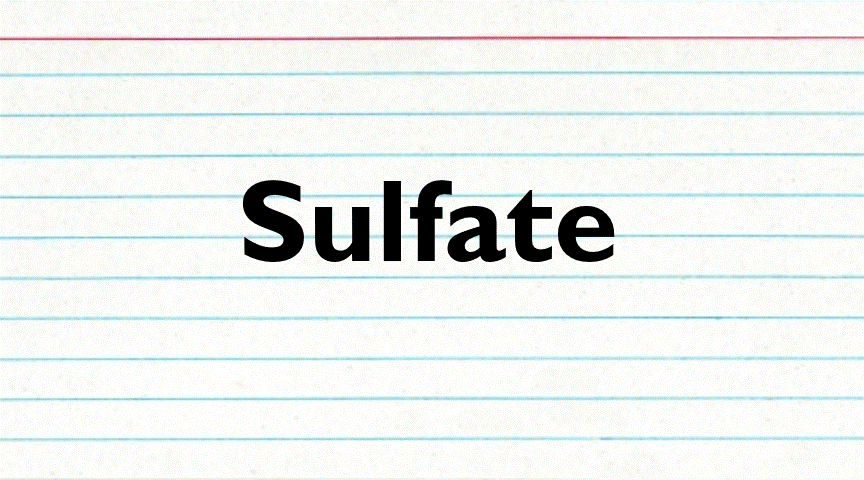 As the GIF above shows, you can put distinct sulfate facts on different flashcards:
As the GIF above shows, you can put distinct sulfate facts on different flashcards:
Flashcard 1: "Sulfate Formula" on the front, and "SO42-" on the back
Flashcard 2: "Sulfate Shape" on the front, and "tetrahedral" on the back
Flashcard 3: "Sulfate Acidity" on the front, and "weak base" on the back
Flashcard 4: "Sulfate Lewis Dot Structure" on the front, and a drawing of the structure on the back
Quiz
Which of these would make a good flashcard prompt? Select all that apply:
2. Practice Problems
Practicing problems is one of the best study techniques to help you actively learn.
Steps for doing practice problems:
List all of the knowns and unknowns for the problems.
Do as much as you can without looking at your resources. Make note when you get stuck.
Look up unknown steps in your textbook and/or notes.
Try to finish the problem.
Go to tutoring or office hours if you're still stuck.
Repeat these steps for the same or similar problems as you get closer to an exam, trying to get farther without resources each time.
Where to find practice problems:
Your textbook
Homework and practice exams
Khan Academy for both general chemistry and organic chemistry
3. Test-Like Conditions
View studying as practicing for your chemistry exam. As you get closer to test-day, you want to mimic your test environment as much as possible by doing the following:
Study in a quiet environment with people around, like quiet study rooms at the library.
Set a timer when doing practice exams.
Use the calculator you are allowed on the exam so you can use it efficiently.
Aim to solve practice problems from memory. If you're allowed to use a cheat sheet, refer to that while you are studying.
Show all your work when working through problems
Develop a practice of double-checking your work.
Practicing as if you are actually taking the test increases your long-term memory of information through active recall. This will help you feel more confident and less anxious going into your exam!
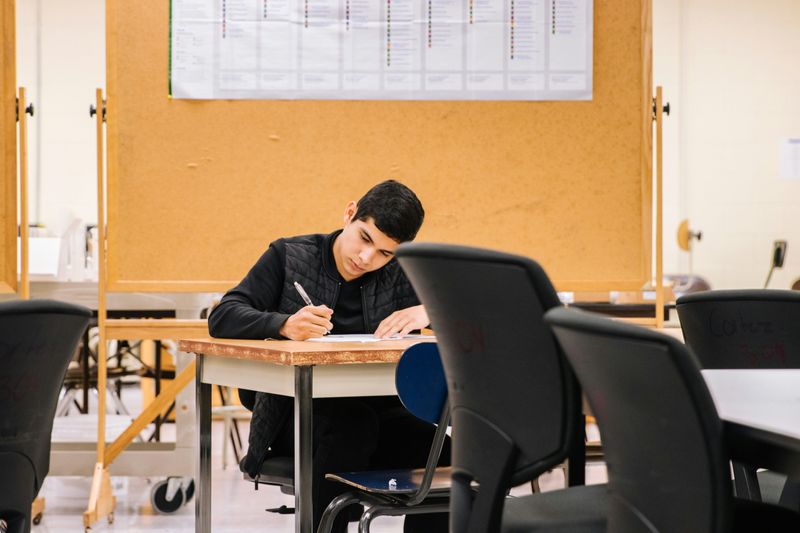 Photo by Jeswin Thomas on Unsplash
Photo by Jeswin Thomas on Unsplash4. Talk It Out
Don't underestimate the benefit of talking about your chemistry class with other people! Some options include:
Create a study group and meet regularly.
Attend office hours held by your Professor or their Teaching Assistant (TA). Don't be intimidated! They want you to come talk to them even if you only have one question. Bring a friend if that will give you confidence.
Use your university's tutoring. If your college provides chemistry tutoring, it can be a great way to get your questions answered!
Teach a classmate, roommate, or family member what you are learning. Use the Feynman Technique, which focuses on explaining a concept to someone else in simple terms.
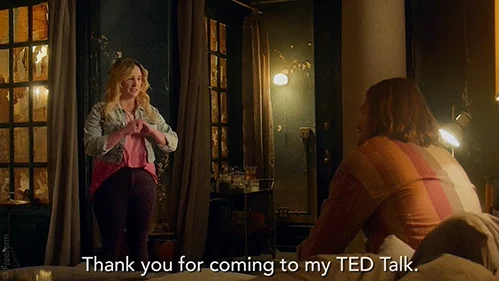
5. Bonus Tip: Stoichiometry & Unit Conversions
A critical skill in chemistry is working through unit conversions and word problems that involve stoichiometry. Stoichiometry is the measurement of "chemicals that go into, and come out of, any given reaction."
As you work through these problems, always show all of your work because:
This will make it easier to spot mistakes and make corrections.
Often, professors and TAs will give you partial credit if your thought process is correct, even if the answer is wrong!
Stoichiometry Example
Check out the railroad track method in the image below. It helps you make sure you are cancelling your units correctly (units represented in both the denominator and numerator can be cancelled). Don't forget to balance your equation before starting to solve the problem.
If you need a refresher, check out: Learn how to balance a chemical equation in 3 easy steps ⚖️ 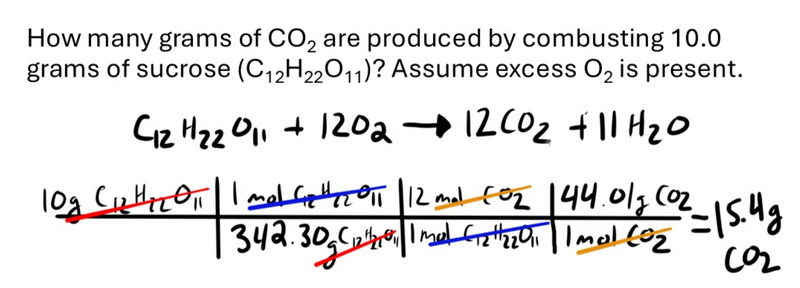 To hear an audio version of the chemistry problem in the image above, click the play button on the audio player below:
To hear an audio version of the chemistry problem in the image above, click the play button on the audio player below:
Quiz
Where can you find stoichiometry practice problems? Select all that apply.
Take Action
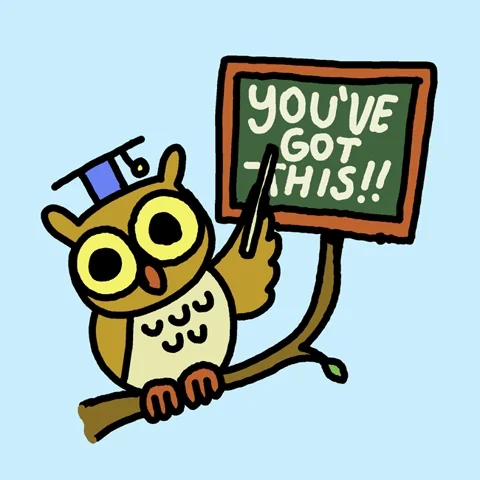
You now have some effective study techniques as you prep for your chemistry exams. Check out the tips and related resources below:
Your feedback matters to us.
This Byte helped me better understand the topic.

